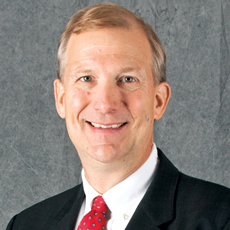
Low occupancy. Low profit margins. Impossibly low reimbursements. Pressure to risk share. Inaccurate staffing tabulations.
One can forgive Mark Parkinson if he ever seems distracted. As the president and CEO of the nation’s largest association of nursing home and assisted living operators, he clearly has a lot on his mind these days, including the problems listed above.
But it hasn’t stopped him from prognosticating on the future. It’s something he could prove very good at. On Tuesday, he predicted that the next 10 to 15 years might eventually be viewed as a time when successful providers took control of their own fate, creating their own insurance and payment plans, for example.
The phrase that pays is “population management.” It’s a new point of emphasis and long-term care providers are going to be hearing a lot about it. In brief, it means operators taking control of their own future by creating their own managed care companies for their own residents within their own buildings.
The opportunity lies with Institutional Special Needs Plans, or “I-SNPs” in the industry vernacular. Some 22 skilled nursing providers have already created their own Medicare Advantage managed care companies through I-SNPs, Parkinson noted.
He hopes many of those 22 will be represented next Tuesday in Washington for the first meeting of a newly formed council.
The American Health Care Association / National Center for Assisted Living has created the new workgroup to discuss and devise best practices so others can look into starting down the same path.
There is no single trait that automatically validates a company for an I-SNP. But regional firms such as Marquis Companies in the Northwest and NHS Management in the Southeast are well represented. A few larger providers, such as the Good Samaritan Society and National HealthCare Corporation (NHC), also have jumped in. Former AHCA Board Chair Tom Coble and his Oklahoma-based Elmbrook Management Company were the first to form an I-SNP, according to Parkinson.
“If we’re not a part of the managed care world, we’re just commodities,” he warns.
So just as post-acute providers discovered how to take advantage of rehab and therapy dollars over the past two decades, Parkinson thinks they’ll rally to control their own fate once again.
“I applaud the 22 groups that have formed their own companies,” he said. “We want to make sure others can do it too. We want to make sure skilled nursing facilities are at the front of this.”
He’s “not ready to say everybody has to be in an ISNP to find success in the future.” But no matter what the size of the provider, it must at least investigate its options. For some, maybe partnering with others who are taking the full plunge would make the most sense.
The key is to look into population health strategies. Control the healthcare delivery for residents both in your facility and in the vicinity through managed care, accountable care organizations and similar tools.
In other words, you’re either doing something for yourself or you’re being done unto. It seems clear which is the more desirable option. The future will verify it for us.
Follow Editor James M. Berklan @JimBerklan.




